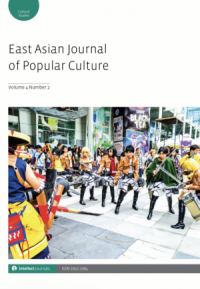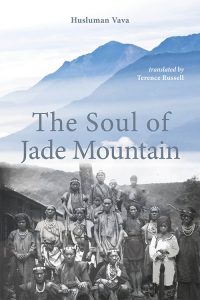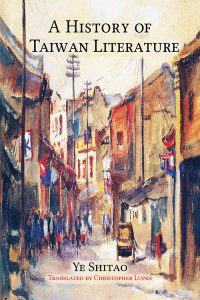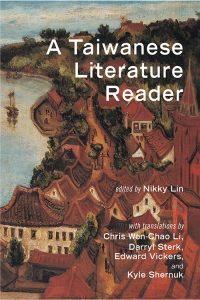學術刊物
East Asian Journal of Popular Culture, EAJPC
Intellect

International Journal of Asia Pacific Studies, IJAPS
Universiti Sains Malaysia (USM) Press
ISSN 1823-6243
http://ijaps.usm.my
International Journal of Taiwan Studies, IJTS
Brill

https://brill.com/view/journals/ijts/ijts-overview.xml
Sinophone and Taiwan Studies
Springer
 “This book series aims to stimulate and showcase the best of humanistic and social science research related to Sinophone communities and their cultures in Taiwan and around the globe.
“This book series aims to stimulate and showcase the best of humanistic and social science research related to Sinophone communities and their cultures in Taiwan and around the globe.
By combining Sinophone and Taiwan Studies in one book series, we hope to overcome the limitations of previous methodologies to explore the many aspects of Sinophone communities and Taiwan from expansive perspectives that are comparative, transnational, and relational.
The foci of the book series include, but are not limited to, the complex relationship between locality and globality, the interrelations among various categories of identity (national, cultural, ethnic, racial, gender, linguistic, religious, and sexual), the states of multiculturalism versus creolization, the politics and economics of culture, diasporic and anti-diasporic practices and expressions, various forms and processes of colonialism (settler colonialism, formal colonialism, postcolonialism, neo-colonialism), as well as indigeneity.”
ISSN: 2524-8863
The Soul of Jade Mountain
Cambria Press
 “Cultural production, including literary work, has been a key element in the Indigenous struggle for decolonization worldwide. In Taiwan, ethnographic novels written in Chinese, such as The Soul of Jade Mountain (Yushan hun) by Bunun writer Husluman Vava (1958–2007), have been an important tool in the process of bringing the circumstances of Indigenous people to the attention of mainstream audiences.
“Cultural production, including literary work, has been a key element in the Indigenous struggle for decolonization worldwide. In Taiwan, ethnographic novels written in Chinese, such as The Soul of Jade Mountain (Yushan hun) by Bunun writer Husluman Vava (1958–2007), have been an important tool in the process of bringing the circumstances of Indigenous people to the attention of mainstream audiences.
Before his untimely death, Vava was one of the leaders of the Indigenous cultural revival movement in Taiwan. He was among the first Indigenous authors to make use of long fiction, and he did so quite prolifically. For Vava, as is the case for many Indigenous community leaders, the mission was twofold. He wanted to recover and preserve the rich traditions of his ancestors so that younger generations, in their search for their identity and roots in the modern world, could find quality sources created within their own community. Vava also wanted to make those in the mainstream aware of the true nature and depth of Bunun culture. His many short stories and novels fashion a vivid portrait of the Bunun people, their daily life, their values, and their aspirations. Vava created accessible characters in empathetic situations in order to demonstrate the deeply human qualities of traditional Bunun life and to suggest that those qualities maintain their validity in the modern world.
Vava’s novel The Soul of Jade Mountain won the 2007 Taiwan Literature Award for best novel. This is the first English translation of an ethnographic novel by a Taiwan Indigenous writer to be published by a North American publisher, marking an important step in bringing Indigenous Taiwan to international audiences.
This book is part of the Literature from Taiwan Series, in collaboration with the National Museum of Taiwan Literature and National Taiwan Normal University.”
ISBN: 9781604979947
A History of Taiwan Literature
Cambria Press
 “A History of Taiwan Literature by Ye Shitao, an important public intellectual in Taiwan, was published in the crucial watershed year of 1987 when the end of martial law on the island was signaled. Ye’s work was clearly a product of that period and would have been less timid, considering the fact that the rule book on public expression had yet to be written, if it had been written later. The book is a rigorous, comprehensive treatment; it goes to great lengths to devote attention to all major writers in the history of Taiwan as well as many who were not as prominent. Ye has been fair and evenhanded in the writing of his literary history of Taiwan; there is little, if any, tendentiousness in the book. This is arguably one of the most important intellectual works of literary history, made even more impressive by Ye’s inclusion of copious notes, including Japanese-language ones.
“A History of Taiwan Literature by Ye Shitao, an important public intellectual in Taiwan, was published in the crucial watershed year of 1987 when the end of martial law on the island was signaled. Ye’s work was clearly a product of that period and would have been less timid, considering the fact that the rule book on public expression had yet to be written, if it had been written later. The book is a rigorous, comprehensive treatment; it goes to great lengths to devote attention to all major writers in the history of Taiwan as well as many who were not as prominent. Ye has been fair and evenhanded in the writing of his literary history of Taiwan; there is little, if any, tendentiousness in the book. This is arguably one of the most important intellectual works of literary history, made even more impressive by Ye’s inclusion of copious notes, including Japanese-language ones.
In this translation, Christopher Lupke has painstakingly translated both Ye’s main text and notes, making this valuable resource available to English readers for the first time. Lupke also provides an introduction that contextualizes Ye’s work as well as an epilogue that outlines some of the major historical and literary developments after 1987, along with a brief mention of some of the most important literary figures of Taiwan. In addition to a glossary and index, Lupke offers a select bibliography that lists works that Ye referenced in his own notes as well as some books that Lupke consulted in completing this translation.
A History of Taiwan Literature is a most important resource for those interested in the intellectual history of East Asia, world literature, and Taiwan studies.
This book is part of the Literature from Taiwan Series, in collaboration with the National Museum of Taiwan Literature and National Taiwan Normal University.”
ISBN: 9781621964773
A Taiwanese Literature Reader
Cambria Press
 “Taiwan was a Japanese colony until the end of the Second World War in 1945—making for fifty-one years of Japanese rule over Taiwan. This period was a struggle for the Taiwanese people, whose lives were inevitably shaped by the changes and challenges brought about in the transition from a traditional to a modern society, one that was caught between the pull of colonization and modernization.
“Taiwan was a Japanese colony until the end of the Second World War in 1945—making for fifty-one years of Japanese rule over Taiwan. This period was a struggle for the Taiwanese people, whose lives were inevitably shaped by the changes and challenges brought about in the transition from a traditional to a modern society, one that was caught between the pull of colonization and modernization.
Literature serves as a reflection of an era. This book thus focuses on the literature written by Taiwanese authors during the era of Japanese colonial rule over Taiwan. Two of the short stories were written in Chinese, while the other four were written in Japanese—a testament to Taiwan’s complex history.
According to Taiwanese writer and historian Ye Shitao, the development of Taiwanese literature during Japanese occupation can be divided into three stages: the “nascent period” (1920–1925), followed by the “mature period” (1926–1937), and finally the “war period” (1937–1945). The six stories in this collection are representative works from the mature period and the war period. Each story depicts different hardships and predicaments faced by Taiwan as a colony under Japanese rule, offering insight into how this part of Taiwan’s history continues to impact contemporary Taiwanese society.
A Taiwanese Literature Reader is a most important resource for those interested in world literature and Taiwan studies.
This book is part of the Literature from Taiwan Series, in collaboration with the National Museum of Taiwan Literature and National Taiwan Normal University.”
ISBN: 9781621965053